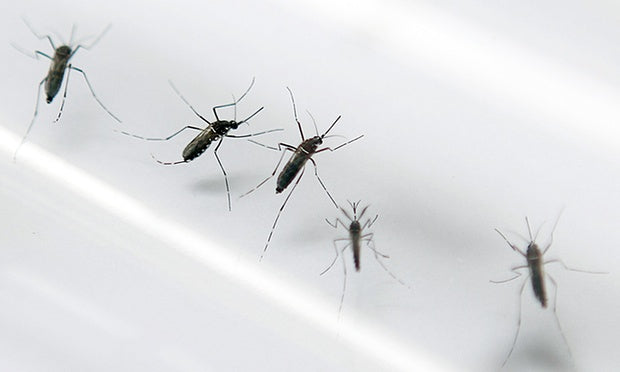
The World Health Organization (WHO) recently declared a "public health emergency of international concern" over Zika virus due to it's rapid spread across the globe and it's link to an alarming spike in birth defects.
According to the Centers for Disease Control and Prevention (CDC), the Aedes mosquito-borne virus is believed to potentially cause pregnant women to have babies with abnormally small heads — a condition called microcephaly.
Numerous cases have been reported throughout South America and several in the U.S. Its common symptoms, which are usually mild and last for 2-7 days, include: fever, rash, joint pain, and conjunctivitis (red inflamed eyes).
The virus is considered to be a flavivirus, part of the same family as yellow fever, West Nile, chikungunya and dengue. However, unlike some of these, there is no specific treatment or vaccine currently available.
The best form of prevention is protection against mosquito bites, according to WHO. Here are several ways workplaces can help stop mosquito breeding and protect outdoor workers and their loved ones from potentially contracting the virus (via WorkCover Queensland):
- Eliminate mosquito breeding sites by filling holes where water could get trapped with concrete or sand
- Employers can provide insect repellent (such as those from CoreTex), protective clothing (our customers love the PIP Navy 8.5 Cal Dual Certified ARC/FR Coverall), insect screens, mosquito nets, and mosquito coils and zappers for staff
- Put a fine mesh over gutter grates to reduce the amount of litter that can enter and keep pits clear of debris that stops water flow
- Have pest controllers treat drain tanks during routine pest treatment
Worksites should be checked at least once a week for any items that can hold water. Then proceed to do the following:
- Tip out any water in things like plastic containers, tarpaulins, buckets, fallen palm fronds and pot plant bases.
- Store anything that can hold water undercover or in a dry place, including work equipment, surplus materials or trailers, and keep bins covered.
- Throw out any garbage or debris lying around like unused or empty containers, tires, and other waste materials.
If you have questions or need help finding the right mosquito repellent, please feel free to call us at 800-829-9580.
